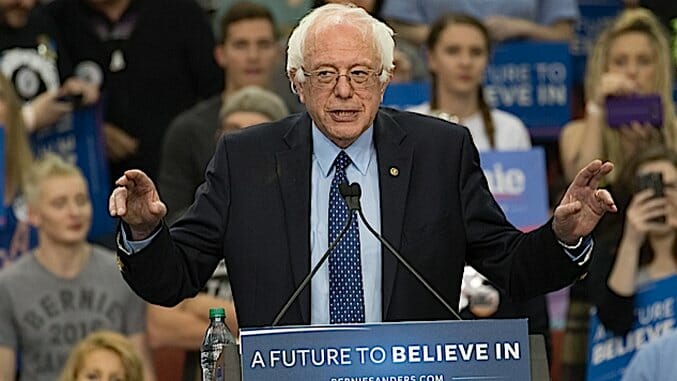
The word momentum can only be described in one way when it comes to politics – monumentally overused.
Bernie Sanders, by all accounts, has been running away with the momentum. In winning the Wisconsin primary he has gained momentum, after his recent three state sweep he has also gained momentum (and from that perch is eyeing a subset of Clinton supporters), and in gaining momentum, he has caused Hillary Clinton to take notice.
Yet this isn’t an article about Bernie Sanders or the Democratic or Republican campaigns more generally. What all of the aforementioned headlines hinged on was the fact that Sanders was “gaining momentum”. Whatever that means.
For many, momentum is a feeling, a shorthand term to describe the feeling behind a candidate as they: win states, perform well in polls, close out debates, recruit more volunteers, receive more fundraising, open more field offices, appear on television more, draft more interns, say more things, buy more pencils, get better haircuts, eat pizza without a fork and knife, or have birds land on their podiums.
Ok so get it? Momentum is, well, momentum.
Here’s the problem: It doesn’t actually mean anything. Most might argue that momentum is based on polls, yet, as I’ve written about before, polls aren’t that reliable.
So is momentum something you can quantify? No. Is it something that sticks around? Apparently not, considering it seems to change day to day, perhaps most apparently in the 2012 elections when Politico published a story touting Romney’s momentum and then walked that back three days later. The subsequent story lead: “In the past 10 days, Mitt Romney’s campaign has gone from Big Mo to Slow Mo”.
So what gives?
The problem is that momentum is essentially a catchall phrase the media uses to not explain that actual issues underpinning a candidate’s rise or fall. Momentum can encompass everything (and nothing) in one word that saves us from having to dig deeper. I’m certainly guilty of this as well. I have used the word regularly, even though when writing a piece the other day, I sat back and realized I didn’t know precisely what I was trying to say when I used the word.
So let’s a take a look at the slew of articles hingeing on “momentum” I mentioned previously. When Sanders starts to surge and wins numerous states, it’s worth noting why this might be happening. Could it have something to do with the largely white makeup of the states? Could it have to do with the fact that these states are largely caucuses, which Sanders has historically performed better at? Could it have to do with the prediction that this Democratic primary would be a back and forth of mini runs, with candidates taking a slew of states before their opponent turns around and does the same (Hillary Clinton in Super Tuesday)? The answer is all of the above. These are underlying demographic, structural, and quantitative issues that are worth interrogating, and event just admitting, rather than dashing off the word momentum and assuming it’s all covered.
If the job of the media is to rigorously cover more than Donald Trump’s bombast and the “momentum” of various candidates, then we can do better than 8 letters. Indeed, when writing about how memes perfectly encompass the problems with our political engagement, I touted journalists as generally covering issues with more than 10 words or so.
So with that in mind, let’s avoid those 8 letters that make up “momentum”, shall we? We may be all the better for it at the end of November.